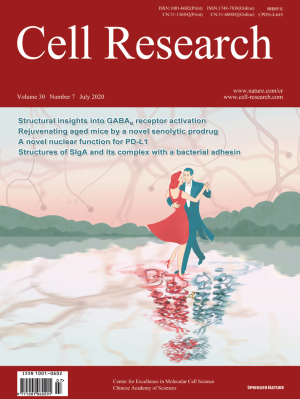
Advanced Search
Submit Manuscript
Advanced Search
Submit Manuscript
Volume 30, No 7, Jul 2020
ISSN: 1001-0602
EISSN: 1748-7838 2018
impact factor 17.848*
(Clarivate Analytics, 2019)
Volume 30 Issue 7, July 2020: 590-601 |
Regulation of sister chromatid cohesion by nuclear PD-L1
Jia Yu1,† , Bo Qin1,2,† , Ann M. Moyer3,4 , Xinyi Tu2 , Haidong Dong5 , Judy C. Boughey6 , Matthew P. Goetz1,2 , Richard Weinshilboum1 , Zhenkun Lou2,* , Liewei Wang1,*
1Department of Molecular Pharmacology and Experimental Therapeutics, Mayo Clinic, Rochester, MN 55905, USA;Programmed death ligand-1 (PD-L1 or B7-H1) is well known for its role in immune checkpoint regulation, but its function inside the tumor cells has rarely been explored. Here we report that nuclear PD-L1 is important for cancer cell sister chromatid cohesion. We found that depletion of PD-L1 suppresses cancer cell proliferation, colony formation in vitro, and tumor growth in vivo in immune-deficient NSG mice independent of its role in immune checkpoint. Specifically, PD-L1 functions as a subunit of the cohesin complex, and its deficiency leads to formation of multinucleated cells and causes a defect in sister chromatid cohesion. Mechanistically, PD-L1 compensates for the loss of Sororin, whose expression is suppressed in cancer cells overexpressing PD-L1. PD-L1 competes with Wing Apart-Like (WAPL) for binding to PDS5B, and secures proper sister chromatid cohesion and segregation. Our findings suggest an important role for nuclear PD-L1 in cancer cells independent of its function in immune checkpoint.
https://doi.org/10.1038/s41422-020-0315-8